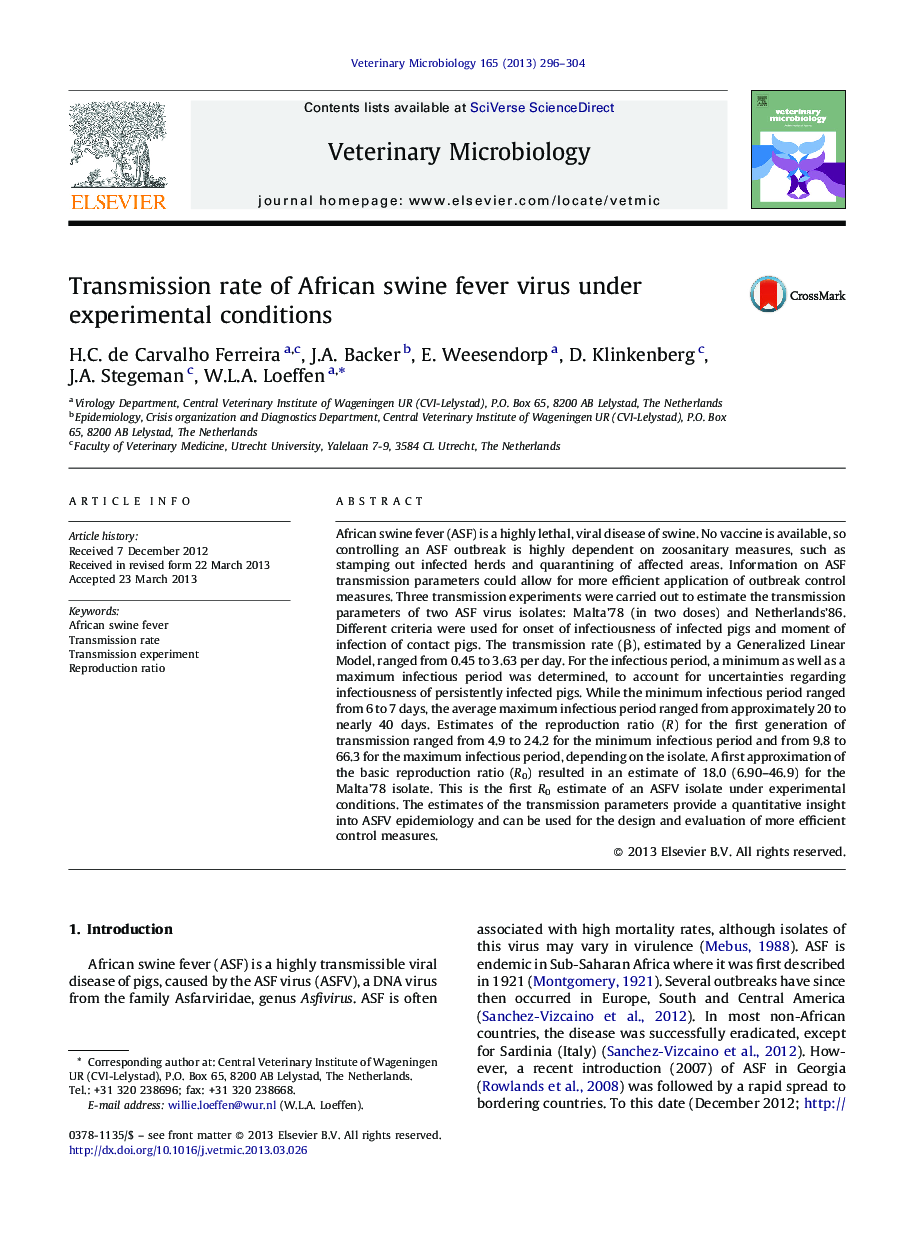| کد مقاله | کد نشریه | سال انتشار | مقاله انگلیسی | نسخه تمام متن |
|---|---|---|---|---|
| 2466828 | 1555372 | 2013 | 9 صفحه PDF | دانلود رایگان |

African swine fever (ASF) is a highly lethal, viral disease of swine. No vaccine is available, so controlling an ASF outbreak is highly dependent on zoosanitary measures, such as stamping out infected herds and quarantining of affected areas. Information on ASF transmission parameters could allow for more efficient application of outbreak control measures. Three transmission experiments were carried out to estimate the transmission parameters of two ASF virus isolates: Malta’78 (in two doses) and Netherlands’86. Different criteria were used for onset of infectiousness of infected pigs and moment of infection of contact pigs. The transmission rate (β), estimated by a Generalized Linear Model, ranged from 0.45 to 3.63 per day. For the infectious period, a minimum as well as a maximum infectious period was determined, to account for uncertainties regarding infectiousness of persistently infected pigs. While the minimum infectious period ranged from 6 to 7 days, the average maximum infectious period ranged from approximately 20 to nearly 40 days. Estimates of the reproduction ratio (R) for the first generation of transmission ranged from 4.9 to 24.2 for the minimum infectious period and from 9.8 to 66.3 for the maximum infectious period, depending on the isolate. A first approximation of the basic reproduction ratio (R0) resulted in an estimate of 18.0 (6.90–46.9) for the Malta’78 isolate. This is the first R0 estimate of an ASFV isolate under experimental conditions. The estimates of the transmission parameters provide a quantitative insight into ASFV epidemiology and can be used for the design and evaluation of more efficient control measures.
Journal: Veterinary Microbiology - Volume 165, Issues 3–4, 30 August 2013, Pages 296–304